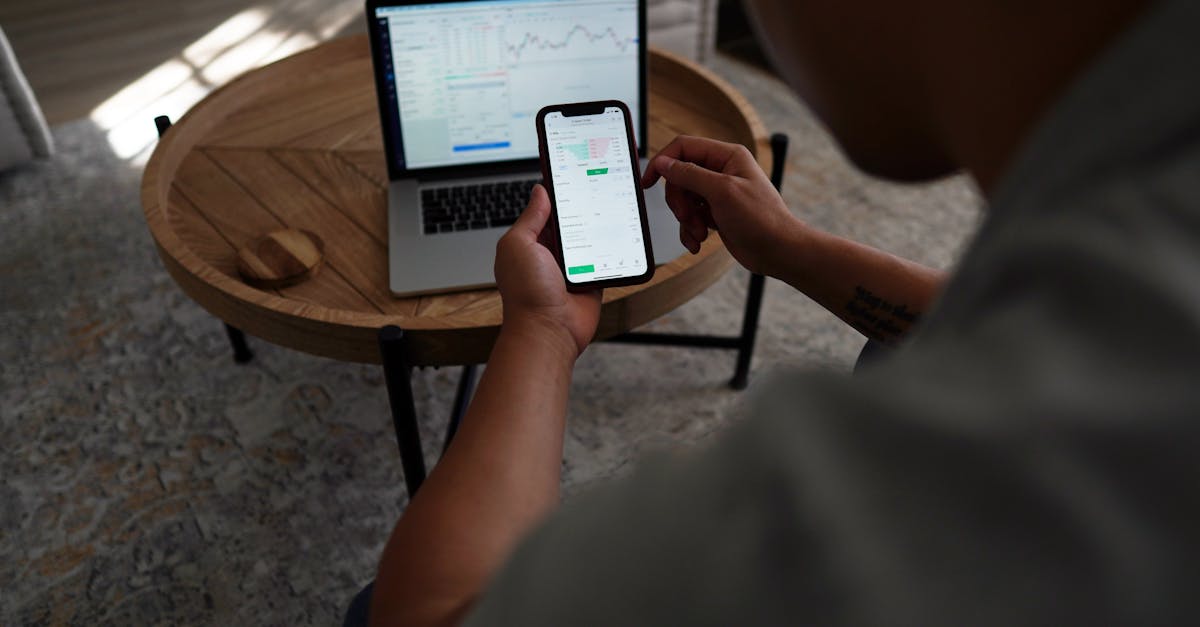
Table Of Contents
Comparing Different Funded Account Programs
Funded account programs vary significantly, each offering its unique structure and features. Some programs require an initial deposit to access capital, while others provide funding based solely on performance metrics. It's crucial for traders to assess aspects like profit-sharing arrangements, account limits, and any potential fees associated with withdrawals. For those considering options, exploring funded trading accounts, can provide insights into local offerings and standards.
Another important factor is the level of support provided by the funded account programme. Having access to educational resources, real-time trading assistance, and mentorship can greatly enhance a trader's experience and success rate. Different providers may offer varying degrees of encouragement and oversight, making it essential for aspiring traders to evaluate these elements. Researching feedback from current users can also help determine which programmes align best with individual trading styles and objectives.
Key Features to Evaluate
When considering funded trading accounts, several key features warrant careful evaluation. First, the trading platform’s usability plays a significant role in the trading experience. A user-friendly interface allows traders to execute trades smoothly and access essential tools without difficulty. Additionally, leverage options can vary significantly between providers, impacting potential returns and the level of risk involved.
Another important feature to assess is the fee structure associated with the funded account. Understanding any hidden costs, such as withdrawal fees or commissions, helps traders make informed decisions. Furthermore, evaluating the range of assets available for trading is crucial. A diverse selection can enhance trading strategies, allowing participants to capitalise on varying market conditions, which is particularly relevant in a dynamically changing environment.
Risk Management and Funded Accounts
Effective risk management is a cornerstone of successful trading, particularly within funded trading accounts in Wycheproof, Victoria. These accounts often have specific guidelines to help traders manage their exposure. Adhering to preset risk parameters, such as maximum drawdown limits and position sizing rules, ensures that the capital provided does not deplete too quickly. Traders must avoid overleveraging their positions, as this can lead to significant losses and trigger automatic account shutdowns in many funded programmes.
Incorporating robust strategies can further enhance risk management efforts. This includes developing well-defined trading plans that outline entry and exit strategies, as well as contingency plans for market volatility. Continuous monitoring of performance also plays a vital role, allowing traders to adjust their tactics based on market conditions. By prioritising risk management, traders can maintain the sustainability of their accounts while striving for profitability in the competitive landscape of funded trading.
Importance of Proper Strategies
Developing proper strategies is crucial when navigating funded trading accounts in Wahgunyah, Victoria. A well-defined strategy not only guides traders through the complexities of the market but also mitigates potential losses. Traders must consider various factors such as market conditions, personal risk tolerance, and investment goals. An effective strategy aligns these elements, allowing for informed decisions that enhance the chances of success.
In addition to traditional strategies, incorporating adaptive techniques can significantly improve trading outcomes. Markets are dynamic, and strategies that remain static can lead to missed opportunities or unexpected losses. Regularly reviewing and adjusting trading plans ensures they remain relevant in changing market environments. For traders in funded trading accounts in Wahgunyah, Victoria, this continuous improvement process fosters resilience and can ultimately contribute to a more profitable trading experience.
How to Choose a Provider
Selecting the right provider for funded trading accounts, involves scrutinising several key factors. Start by assessing the reputation of the provider within the trading community. Look for reviews and testimonials that indicate reliability and support. A strong track record can often reflect the provider's commitment to helping traders succeed. Additionally, consider the range of account types and trading platforms they offer. A diverse selection can cater to different trading styles and preferences.
Support services play a crucial role in the overall experience with funded trading accounts. Ensure that the provider offers accessible customer support through various channels, such as live chat, email, or phone. It is also beneficial to check the availability of educational resources, as these can enhance your trading skills. Ultimately, gathering information about the provider’s structure and resources will help make an informed decision.
Evaluating Credibility and Support
When considering a provider for funded trading accounts, evaluating their credibility is essential. Look for established companies that have a transparent track record. Client reviews and testimonials can provide insight into the experiences of other traders. Verify that the provider is registered with relevant financial authorities and adheres to industry regulations. This level of oversight contributes to the trustworthiness of the service.
Support is another critical aspect when assessing a funded account provider. Prompt and effective customer service can significantly enhance your trading experience. Check if they offer multiple channels for support, such as live chat, email, or phone. Access to educational resources and regular updates can also be beneficial. A provider that invests in comprehensive support demonstrates a commitment to their clients' success in trading.
FAQS
What is a funded account?
A funded account is a trading account that is financed by a third-party provider, allowing traders to trade with capital that isn’t their own.
How much does it typically cost to obtain a 100K funded account?
The cost of a 100K funded account can vary significantly depending on the prop firm, but it generally involves a fee that can range from a few hundred to several thousand dollars, often based on a subscription model or an evaluation fee.
Are there any additional fees associated with funded accounts?
Yes, in addition to the initial fees, there may be additional costs such as monthly subscription fees, profit-sharing arrangements, or other administrative charges that can vary by provider.
What should I look for in a funded account program?
Key features to evaluate include the trading rules, profit-sharing agreements, withdrawal limits, and the level of support provided by the funding company.
Can I lose my own money with a funded account?
No, with a funded account, you typically do not risk your own capital, as you are trading with the funds provided by the account provider. However, you may be required to follow specific risk management guidelines to avoid losing access to the funded account.




